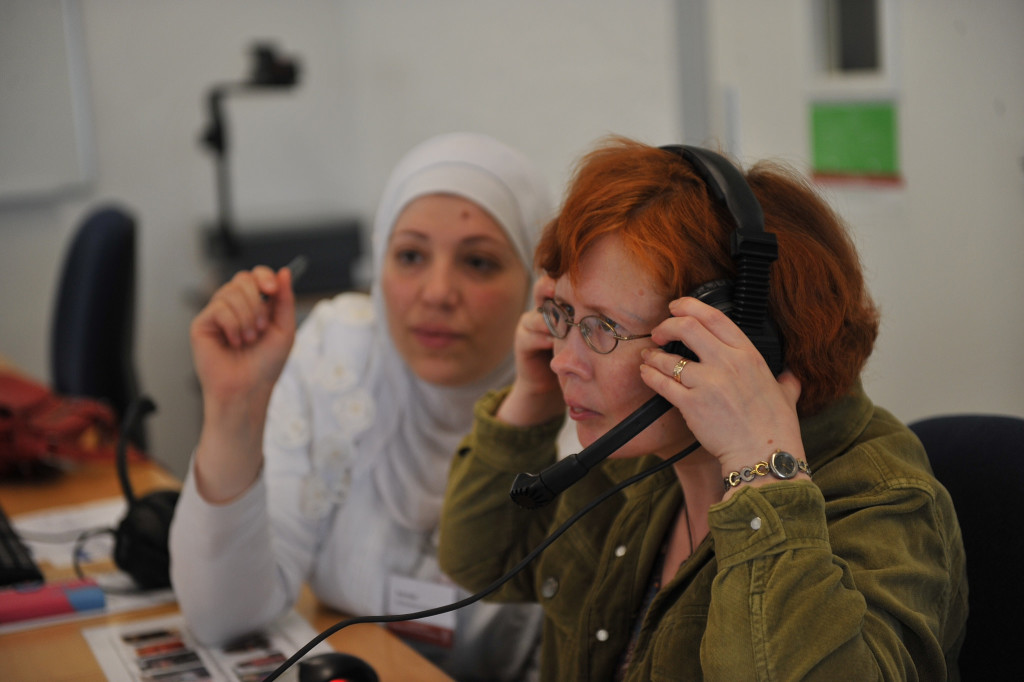It is the last physical meeting of our Diglin project. We have been working for three years on a project for Low Educated Second Language Learners. We have developed software with automatic speech recognition for four languages. It has been exciting and very interesting to work on this. All these different aspects. The differences between the languages, the pedagogical approach in this project, the differences in teaching in the four countries. The task of building something that could make a real difference.
It has also been frustrating sometimes. There is the difference between the four countries and the languages. And we have so many different experts working in this project. Automatic Speech Recognition experts and software developers work together with experts in the field of learning a second language and becoming literate in this new language. In some cases it is really hard to understand each other. We went through difficult periods the past three years. We have encountered numerous (technical) problems in this project.
But I think somehow we all know we are working on an important project.
The meeting is at the 20th floor of the Radboud University in Nijmegen. Researchers from Austria, Finland, England and the Netherlands will look at the last reports in this meeting. We will be talking about the data, the results, how the software was used and how teachers and students appreciated the software. We will be talking about questionnaires and interviews. About the last work to be done. Reports to write. All details, important details. But I think somehow in this we miss the big question.
For illiterate, low educated second language learners it is often a complicated and lengthy task to become literate. Research shows us that in a lot of cases even after 1300 hours of lessons with a teacher students do not reach the goal of being able to read and write on a basic level. With this project we are trying to make a difference.
I ask one of the researchers, Ineke van de Craats, what kind of difference we could make with Diglin. How many hours of lessons can be skipped with what we made? Did we make the learning of these students substantually better and more effective? She is a very experienced researcher in this field. She has seen the results of Diglin. She has been into classes. She has seen how students have progressed. She did the interviews with students and teachers. Of course she tells me that it is very hard to make estimates like that. And that it is very hard to prove anything in this respect. And that there are all kinds of ifs and buts, and she mentions all of them. But finally there comes an answer. She calls it an educated guess. She thinks we have made material that could reduce the amount of lessons needed with 500 hours.
500 hours.
I think she is right. But I never thought she would say this. She is very precise. I am the optimist in this project. She is down to earth.
500 hours… There are all kinds of ways to look at this number. From a learning point of view this is huge. I know what can happen if students see no progress. I know that this could be the difference for students to become literate or stay illiterate.
I think we have made a difference.


This is absolutely GREAT!! Loved reading it and the thanks for sharing!